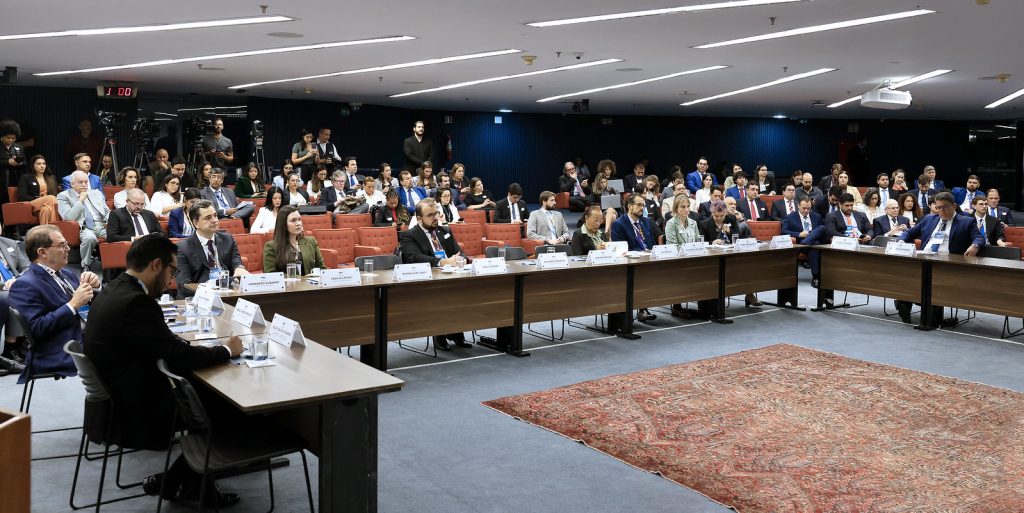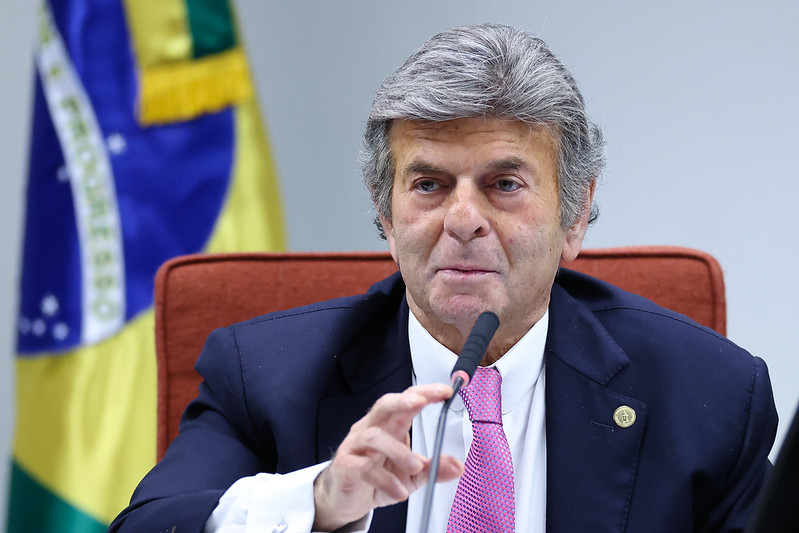The Federal Supreme Court (STF) is holding a two-day public hearing to assess the impacts of sports betting in Brazil, also known as the Bets Law.
This hearing was motivated by a Direct Action of Unconstitutionality (ADI) filed by the National Confederation of Commerce of Goods, Services and Tourism (CNC) against Law No. 14,790/2023, which legalizes online betting in the country.
ANJL alert about the Betting Law
The National Association of Games and Lotteries (ANJL) issued a strong warning about the possible consequences of the unconstitutionality of the Bets Law.
Firstly, the association predicts a significant increase in the illegal market in the country. It then highlights the negative impact on the job market. Specifically, ANJL estimates that the market would no longer create around 60,000 new jobs.
Furthermore, the sector would no longer generate revenue of approximately R$4 billion. This significant loss would occur in the first year of legal operation of the betting market. Therefore, ANJL emphasizes the economic and social risks associated with the potential declaration of unconstitutionality of the law.
Pietro Cardia Lorenzoni, legal director of ANJL, emphasized: “If the Direct Action of Unconstitutionality (ADI) is accepted, it ends up, contrary to its own objective, doing what it seeks to prohibit or avoid, which is encouraging pathological gambling, gambling illegal.”
Lorenzoni also countered criticism about the impact of betting on consumer spending. He presented concrete data on the impact of betting. Firstly, he stated that they represent only around 0.23% of Brazil’s national Gross Domestic Product (GDP).
Furthermore, he emphasized that this percentage has an “insignificant” effect on consumer spending. Therefore, his argument sought to minimize concerns about the economic impact of betting.
Furthermore, ANJL’s legal director argued against banning gaming advertising, highlighting that this could benefit illegal operators. “Advertising is one of the essential ways of differentiating regulated from unregulated gaming,” he explained.

Positioning of state lotteries
Representatives from the state lotteries of Rio de Janeiro (Loterj) and Paraná (Lottopar) participated in the hearing at the STF. Furthermore, both representatives defended the constitutionality of the Bets Law.
Hazenclever Lopes Cançado, representative of Loterj, declared: “Federal Law 14,790/2023 consists of a legitimate political option, normative of the Legislative Power in regulating an activity”.
“And every day it becomes more relevant and indispensable for the fulfillment of the fundamental objectives of the Republic, such as national development, the eradication of poverty and the construction of a fair and supportive society.”
In turn, Rafael Halila Neves, representative of Lottopar, highlighted that the lack of regulation “is detrimental to the legal security of bettors, who in this case are consumers”.
He added: “Law 14,790 is essential to guarantee a safe and responsible betting environment by imposing consumer protection standards, promoting transparency and necessary preventive actions.”
Abert’s position in relation to the Bets Law
The Brazilian Association of Radio and Television Broadcasters (Abert) also took a position in favor of the Betting Law. Gustavo Binenbojm, representative of Abert, characterized Law nº 14,790/2023 as a “pragmatic law, which represents the political decision of representatives elected by the Brazilian people not to close their eyes to reality”.
Binenbojm argued that the current regulation is “in line with international best practices” and establishes “very strict guidelines and restrictions on advertising by fixed-odds bookmakers.”
Hearing at the STF
Minister Luiz Fux, rapporteur of ADI nº 7,721, called the public hearing to discuss the impacts of online betting in Brazil. The Court divided the discussion into eight thematic axes, including mental health, social consequences, taxation and transparency of betting platforms.

Fux highlighted that the objective of the discussions is to standardize understandings: “The present public hearing is an initiative that aims to pluralize the decisions handed down by the STF, providing opportunities for civil society to contribute to the activity of interpreting and guarding the Federal Constitution.”
He emphasized the urgency of the issue: “The issues that are raised here, relating to underserved communities, the minor issues and the other serious issues that are highlighted, lead us to the idea that this resolution must be urgent.”
Meanwhile, the legal betting market is scheduled to launch on January 1, 2025. At the same time, the Secretariat of Prizes and Bets, the government regulator of games of chance, is leading the process of granting licenses.
Finally, the minister indicated that the STF should assess the constitutionality of the Bets Law only in the first half of 2025.




